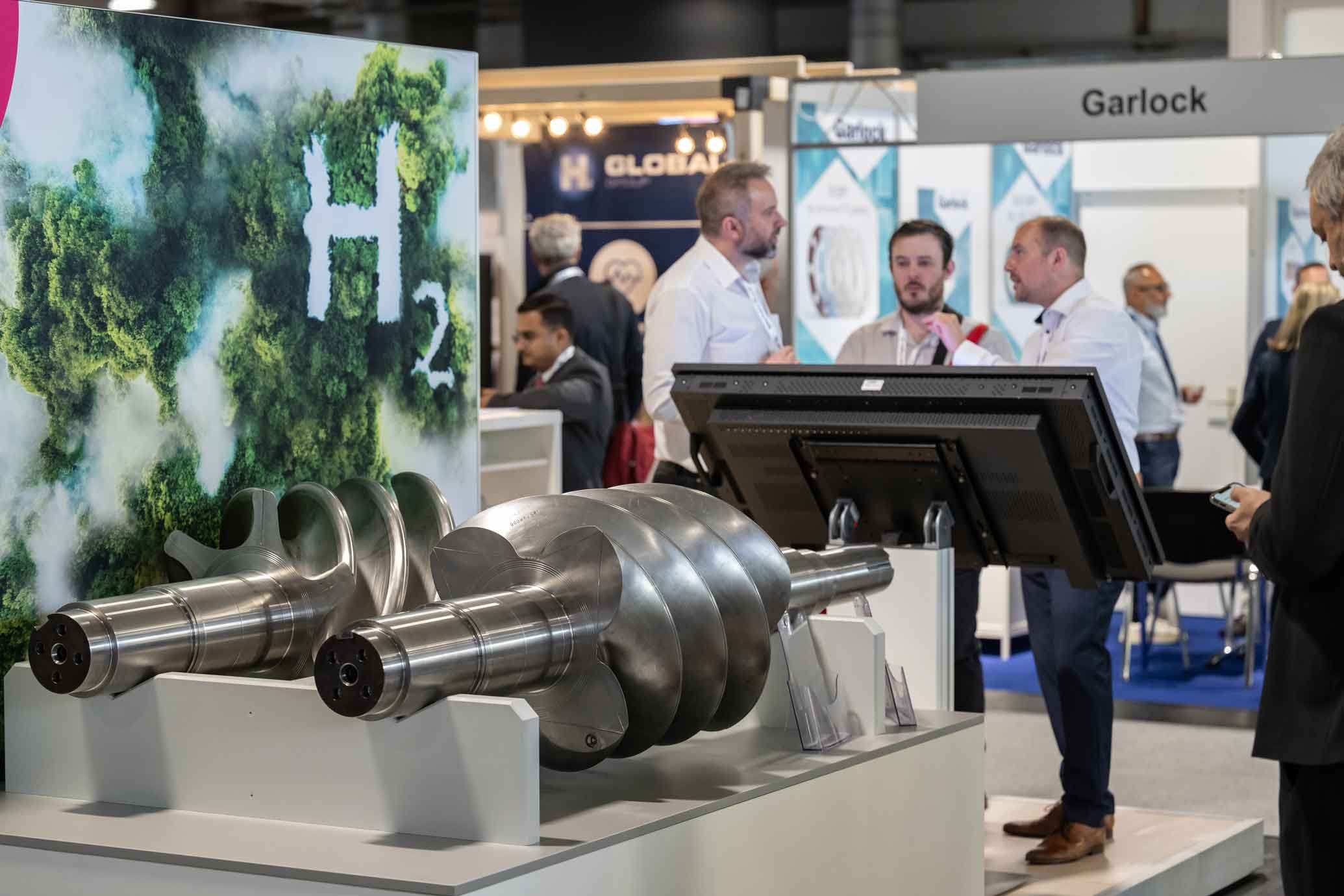Hydrogen Technology and it's Role in Reducing Carbon Emissions

In the pursuit of a more sustainable future, the spotlight on hydrogen technology has intensified. As industries grapple with the pressing need to reduce carbon emissions, hydrogen emerges as a pivotal solution that holds the potential to revolutionise energy systems and drive positive change. This blog delves into how hydrogen tech is poised to play a transformative role in the global mission to curb carbon emissions and pave the way for a cleaner, greener tomorrow.
Unveiling Hydrogen's Carbon-Emission Mitigation Potential
Hydrogen technology is not just a buzzword; it's a game-changing enabler of decarbonization across sectors. As discussed in our previous blog, "Decarbonizing Industries: Hydrogen's Promise for a Greener Tomorrow," hydrogen's versatility and clean energy attributes make it an indispensable ally in the race to reduce carbon emissions.
Hydrogen's pivotal role in energy production lies in its potential to serve as a clean and efficient fuel source. By harnessing hydrogen's energy through fuel cells, industries can generate electricity without emitting harmful pollutants. This transition from traditional fossil fuels to hydrogen-based energy systems holds the promise of significantly lowering carbon emissions and ushering in a new era of sustainability.
Hydrogen's Multi-Faceted Impact: From Mobility to Manufacturing
The application of hydrogen technology spans a diverse array of sectors, each with the potential to contribute to the reduction of carbon emissions:
1. Transporting Toward Zero EmissionsOne of the most profound transformations driven by hydrogen tech is in the transportation sector. Hydrogen-powered vehicles, propelled by fuel cells, emit only water vapor as a byproduct. This emission-free characteristic addresses the environmental challenges posed by conventional combustion engines, reducing not only carbon emissions but also air pollutants. As showcased at the Hydrogen Technology Expo Europe, the transition to hydrogen-powered mobility presents a compelling path toward a future of zero-emission transportation.
2. Industrial Decarbonisation through Fuel SwitchingIndustries known for their carbon-intensive processes are exploring fuel switching as a means to decarbonize. By substituting hydrogen for conventional fossil fuels in industrial processes, emissions can be dramatically reduced. This shift not only curbs carbon emissions but also enhances energy efficiency, making industries more resilient and sustainable. The expo underscores how hydrogen's applications span beyond energy generation, extending into industrial processes that are fundamental to our modern way of life.
3. Energy Storage for Renewable IntegrationRenewable energy sources such as solar and wind are inherently intermittent. Efficient energy storage solutions are essential to harness the full potential of renewables and ensure a stable energy supply. Hydrogen emerges as a versatile storage medium, offering a way to store excess energy generated during peak production periods. This stored hydrogen can then be converted back into electricity when demand surges, effectively balancing the energy grid and reducing reliance on fossil fuels during peak periods.
Unlocking Hydrogen's Potential: Collaboration and InnovationThe conference's comprehensive agenda delves into the myriad ways in which hydrogen technology intersects with emission reduction strategies. From discussions on low-carbon hydrogen production to advancements in efficient storage and distribution, the expo unveils a roadmap that industries can follow to significantly curb their carbon footprint.
Global Synergy for Emission ReductionThe expo's value extends beyond knowledge sharing and solution showcases. The convergence of industries, experts, and innovators creates an environment ripe for collaboration and partnership. As industries across the globe unite to tackle carbon emissions, the event fosters a sense of unity, purpose, and shared responsibility.
Hydrogen Technology: A Crucial Player in the Fight Against Climate Change
The global challenge of climate change necessitates a collective effort to combat its far-reaching impacts. In this endeavour, hydrogen technology emerges as a crucial player, offering a multi-pronged approach to address the urgent need to reduce carbon emissions. As industries, governments, and individuals alike recognise the imperative to transition to low-carbon energy sources, hydrogen's versatility, efficiency, and zero-emission attributes position it as a cornerstone of sustainable development.
Hydrogen's impact on climate change mitigation is two-fold: it reduces carbon emissions at the point of use and enables the integration of renewable energy sources. By producing energy through fuel cells, hydrogen bypasses the combustion process that traditionally results in greenhouse gas emissions. This direct conversion of hydrogen into electricity eliminates carbon emissions, contributing to cleaner air and a healthier environment. Furthermore, as renewable energy sources like wind and solar become more prevalent, hydrogen serves as a powerful storage solution, bridging the gap between intermittent energy generation and consistent demand.
A Glimpse at COVID-19 and Emission Reduction
The COVID-19 pandemic inadvertently offered a glimpse into the potential impact of reduced human activity on carbon emissions. During the global lockdowns that ensued, economic activities slowed down, resulting in a notable drop in carbon emissions. As factories shuttered, transportation systems slowed, and travel came to a halt, carbon emissions experienced a temporary dip.
This unintentional reduction in emissions highlighted the interconnectedness of human activity and environmental impact. It underscored the importance of pursuing sustainable practices and exploring innovative technologies like hydrogen to achieve long-term emission reductions. While the pandemic's effects were temporary, they provided valuable insights into the types of changes required to achieve lasting emission reduction goals.
Hydrogen's Enduring Contribution
Unlike the transient emissions reduction observed during the pandemic, the integration of hydrogen technology offers a sustained and strategic approach to combating climate change. Hydrogen's potential lies not only in its ability to reduce carbon emissions but also in its capacity to drive systemic shifts in energy production, consumption, and distribution. The Hydrogen Technology Expo Europe serves as a nexus where the technologies and strategies to harness hydrogen's potential are unveiled and explored.
By leveraging hydrogen's clean energy attributes, industries can adopt emission-reduction strategies that align with global climate goals. From powering vehicles to supporting industrial processes and bolstering renewable energy integration, hydrogen technology stands as a linchpin in the transition to a low-carbon future.
Hydrogen's Promise in Emission Reduction
The significance of hydrogen technology in emission reduction has become increasingly evident. As we journey through the complexities of climate change and strive to curb carbon emissions, hydrogen stands as a beacon of hope, innovation, and transformation.
In the heart of the matter lies the undeniable fact: hydrogen technology is not just a solution; it's a catalyst for change. The comprehensive discussions, showcases, and innovations that will be unveiled at the Hydrogen Technology Expo Europe will underscore how hydrogen's potential spans industries, sectors, and borders. From revolutionising transportation to redefining industrial processes, hydrogen's impact reverberates far and wide.
Hydrogen's role in emission reduction is firmly rooted in its ability to provide clean, efficient energy without the detrimental environmental consequences associated with traditional fossil fuels. As the world witnessed during the unprecedented lull brought about by the COVID-19 pandemic, changes in human behaviour can lead to temporary emission reductions. However, the enduring contribution of hydrogen technology offers a strategic and sustainable approach that extends beyond short-term disruptions.
In the pursuit of a greener horizon, the hydrogen-powered journey beckons us forward. The integration of hydrogen technology is not merely a choice; it's a commitment to creating a world where carbon emissions are drastically reduced, where industries thrive on sustainable practices, and where the legacy we leave for future generations is one of stewardship and prosperity.
The Hydrogen Technology Expo Europe encapsulates this commitment, serving as a platform where innovation, collaboration, and progress converge. It's a testament to the shared vision of industries, experts, and leaders who understand that the path to emission reduction is illuminated by hydrogen's promise.
As the curtain falls on this exploration of hydrogen technology's role in emission reduction, the narrative continues to unfold. With each milestone achieved, with every technological breakthrough, and with the collective efforts of individuals and organisations alike, we edge closer to the realization of a cleaner, more sustainable world.
So, as we reflect on the journey we've embarked upon, let us not only acknowledge the strides we've made but also the uncharted territories that lie ahead. Let us remember that the horizon we're striving to reach is one where hydrogen's promise translates into a reality of emission reduction, environmental harmony, and a future we can be proud to pass on.
Hydrogen technology isn't just a solution for today; it's a cornerstone for the world we're shaping tomorrow. Together, we navigate towards a greener horizon, where hydrogen's promise truly transforms into a cleaner, more sustainable reality.
We eagerly anticipate your presence in our forthcoming events, as together, we endeavour to shape the future in a manner that is not only sustainable but also serves as a guiding beacon for the generations to come.



)
)
)
)
)
)
)
)


)
)
)
)
)

)
)
)
)
)
)
)
)
)

)
)
)
)
)
)
)
)

)
)
)
)
)

)
)

)
)
)
)
)
)
)
)

)
)
)
)
)

)
)

)
)
)
)
)
)
)


)
)

